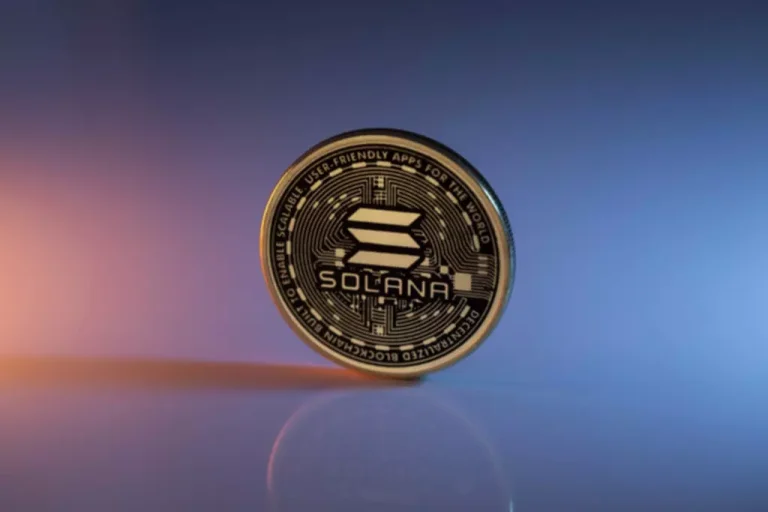The $90 million Liquid trade hack, for example, demonstrated the vulnerability of exchange-hosted custodial wallets. A cryptocurrency pockets is a software program or hardware medium that permits you to work together with a blockchain community. In this text non-custodial within the context of blockchain wallet means a kind of pockets that allows users to own their private key, which are in encrypted storage.

Still, most users adopt the verb to make it easier for novices, so we will use the term all through this article. A personal key is a cryptographically generated string of characters that acts as a password to manage person funds and create a backup wallet on a new gadget. The personal key helps to prove asset possession, create digital signatures, and execute transactions on the blockchain. However, you must be sure that your wallet supports the cryptocurrency you intend to retailer.
How Do I Create A Non-custodial Wallet?
Since custodial wallets cannot function offline, they are extra prone to hacks and online theft. Moreover, custodial wallets require KYC documents that infringe on user anonymity. On the other hand, a personal key is like a password with which users can access their funds or sign a crypto transaction. This, however, implies that you are entrusting your personal keys to a 3rd celebration. In the case of Custodial cryptocurrency exchanges, an enormous quantity of users’ funds is stored in cold and hot wallets. While these wallets will not be a straightforward goal for hackers because of the involvement of varied conformations, they’re still vulnerable to security breaches.
- Some crypto users say this implies custodial pockets customers don’t actually “own” their crypto, since they don’t management the non-public key.
- Based on the kind of safety for your funds, yow will discover two distinct categories of wallets such as custodial and non-custodial wallets.
- Generally, centralized exchanges corresponding to Coinbase and Binance keep users’ non-public keys for safety and accessibility.
- Most — however not all — web-based crypto wallets are custodial wallets, and it’s very probably that the first time you purchase crypto, it will end up in a custodial trade crypto pockets.
- A self-custodial wallet is a type of cryptocurrency wallet the place the person has full control over their private keys and the storage of their digital property.
- In most instances, the non-public key is typically a 12 to 24-word restoration phrase.
You can differentiate the two well-liked variants of wallets for storing your crypto by taking many elements into consideration. Here are a variety of the outstanding variations you possibly can notice in any comparability between non-custodial and custodial wallets. Familiar with the distinct categories of crypto wallets similar to custodial and non-custodial wallets? Let’s move one step forward and perceive the variations between the 2 i.e.
Notable Non-custodial Wallet Suppliers
Although they’ll take many types, the most safe method to maintain your cryptocurrency is utilizing hardware wallets. These crypto wallets usually seem like a USB storage device with a display screen and analog buttons. Non-custodial crypto wallets provide you with complete management of your keys and subsequently your funds.
The function of this web site is solely to show data relating to the services and products obtainable on the Crypto.com App. Private keys are unique identifiers, consisting of an extended string of letters and numbers that reveal possession of a selected wallet and authorize transactions. Learn about how the Proof of Work (PoW) and Proof of Stake (PoS) consensus models differ in how they energy decentralized cryptocurrency networks. MoonPay also makes it straightforward to promote crypto whenever you determine it is time to money out.

However, you must be positive that the wallet you employ helps the kind of crypto you wish to store. But, this also means that you’re entrusting your personal keys to a 3rd party. That’s why it’s important to determine on a reliable exchange or service provider Difference Between Custodial and Non-Custodial Wallets. Yes, custodial wallets are protected to make use of however users must do their own analysis earlier than selecting one. It is better to select custodial wallets that comply with laws and provide sturdy security and insurance protection.
Custodial wallet users can depend on the custodian to retrieve their password in the case of loss. For instance, a custodial crypto trade ought to get well a user’s funds because it holds custodial rights over the user’s personal key. Thus, customers can sometimes contact customer assist to assist get their belongings back. A non-custodial wallet is a pockets in which you might be liable for storing and managing your private keys. Instead of third events like crypto exchanges having custodial entry, you have full management over your digital assets. The major disadvantage of custodial wallets is that you should entrust your funds and personal keys to a 3rd celebration.
Custodial Vs Non-custodial Wallets: What’s The Difference?
Most cryptocurrency users use each, nevertheless it all is dependent upon your preferences. But if you’d like a service supplier to deal with your storage wants when you trade or invest, you can search for reputable custodial pockets service suppliers. Non-custodial wallets provide you with complete control over your keys and funds with no third-party guardian.
If users overlook their login credentials, then they can depend on the wallet supplier for recovering their credentials. All you must do is enter the additional info provided on the time of making the account. Users have to be extra responsible with non-custodial wallets as a outcome of dropping one’s non-public keys means dropping their funds endlessly. Apart from the seed phrase, there isn’t a way to restore an account if a person loses their password. Sometimes the consumer interface of non-custodial wallets can even appear a bit overwhelming for new users. Unlike with a centralised custodial resolution, users have full control and possession of their crypto when they use Crypto.com DeFi Wallet.
If customers lose any sensitive data, they will contact customer help and regain access to their funds. Thus, with custodial wallets, customers can usually benefit from backup amenities at any time to assist avoid financial loss. To understand how a custodial pockets works, it’s necessary to know first how crypto wallets work. Instead, they comprise the public key, which lets the consumer set up transactions, and the private key, which is used to authorise transactions. With non-custodial wallets, a crypto user has full management over their personal key, along with their funds. Non-custodial wallets are typically a bit extra technically complicated than custodial wallets, so they’re typically extra favored by experienced crypto users.
What’s The Primary Distinction Between Custodial And Non-custodial Wallets?
Non-custodial crypto wallet holders have sovereign control over their personal keys, and therefore control their funds completely. They don’t need to belief a 3rd celebration trade to correctly manage their property. Moreover, offline non-custodial wallets, or “cold wallets”, are protected against online hackers. With non-custodial wallets, nevertheless, customers must be additional cautious since shedding one’s personal key means shedding all their property. For custodial crypto wallets, the pockets provider is tasked with securely storing the user’s non-public key.

While non-custodial crypto wallets supply the most secure resolution for storing crypto, some buyers aren’t comfortable taking full duty for their property. If you lose your private keys and fail to take the mandatory precautions for restoring your wallet, you may lose entry to your funds eternally. Also, if somebody features access to your personal keys, you can’t call customer support and change your password. Turned off when not in use, these hardware, non-custodial crypto wallets must be linked to a computer or cell device through USB ports or bluetooth to transact. For this reason, even a malware-infected computer or cellphone can’t access your funds when you’re using a non-custodial hardware pockets.
For instance, interacting with Ethereum-based decentralized applications (dApps) during times of excessive community congestion may be quite expensive. However, many custodial wallets usually supply a flat charge for transactions, or in some instances, no fee at all. KuCoin Wallet is a safe and handy non-custodial multi-chain crypto wallet that’s totally supported by the KuCoin ecosystem. The wallet’s public beta testing phase saw greater than three million consumer registrations. Another downside is that custodial wallets usually don’t supply the same level of security as non-custodial wallets.
What Is A Non-custodial Crypto Wallet?
The most common type of custodial wallet is an exchange pockets, where the exchanges hold personal keys on behalf of their customers. You don’t want to fret about producing or backing up personal keys, as the service will do that for you. The downside is that you rely on the safety of the service, and you don’t have precise possession of your funds. The difference between custodial and non-custodial wallets when it comes to user-friendliness tilts in favor of custodial wallets. Beginners, in addition to experienced traders, use in style custodial wallets such as Binance, Coinbase, and others.
This is as a end result of they usually sacrifice some security measures to make them easy to make use of. The draw back of custodial wallets is that you’re reliant on the security of the service, and you don’t have precise possession of your funds. This Learn article will have a look at what crypto wallets are and what the difference is between non-custodial and custodial wallets.


